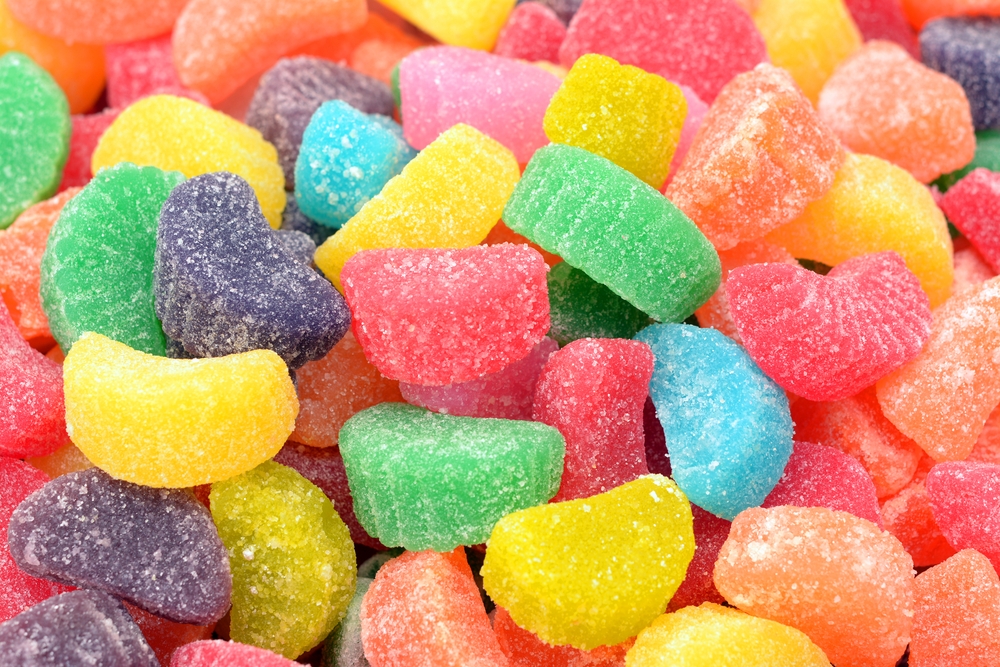
Many children are very fond of sweets. Once the door to sugar is opened, they cannot control themselves, even many adults.
But recently, the happy thing of eating sweets has been named by the World Health Organization.
In July this year, the World Health Organization released a survey report saying that between 2016 and 2017, baby foods on the markets of Britain, Denmark and Spain were sampled.
During the test, it was found that some manufacturers added fruit paste to the food to increase sugar. If you eat these foods frequently, it will cause various health injuries such as dental caries and obesity to infants.
In order to promote countries to formulate effective policies and legal measures to avoid the use of [inappropriate publicity] in infant food, WHO recommends that food producers should be prohibited from adding free sugars to foods and beverages for infants under 3 years old.
It is suggested that free sugars prohibited from being added include:
- Add sugar and other sweeteners (including all syrup, honey, fruit juice, concentrated fruit juice or sweeteners such as saccharin, acesulfame, sucralose, aspartame, stevia rebaudiana) fruit juice and concentrated fruit juice (except a small amount of added lemon or lemon juice as preservatives)

In addition, as one of the raw materials for dinner, the content of processed or concentrated 100% fruit (fruit paste or dried fruit) should be within 5% of the total weight of the food.
And on the front of the package, it is necessary to show the percentage of sugar to the total energy (energy supply ratio).
It is worth noting that this WHO issue is not a law or regulation, but a proposal, which is also aimed at infant food and beverages (formula milk is not included).
It is not clear that this proposal will bring about changes in how to the infant food industry, but a clear signal to parents is that the harm of infant sugar intake cannot be overlooked.
This is not the first time WHO has issued a [sugar restriction order]. As early as 2015, it was recommended in the < Guidelines for Sugar Intake of Adults and Children > >:
Reduce the intake of free sugar in adults and children to less than 10% of the total energy intake. If conditions permit, the intake of free sugar should be reduced to less than 5% of the total energy intake.
This time, a special reminder was given to the 3-year-old age group. Behind the [harsh] is actually the concern about the health problems brought about by excessive sugar intake to infants.
Many parents know that eating too much salt too early is not good for their children, but compared with eating salt, eating sugar is even more harmful.
Eating sugar can make children addicted.

Many children want to eat sweets as soon as they see them. Whenever they eat sweets, they will be very happy.
Moreover, children who like sugar very much will start crying mode if they cannot eat sugar, and will also show irritability and groggy. Does this feeling sound very similar to smoking, drinking and even drug addiction? Yes, because this is sugar addiction!
Sugar excites the happiness center and reward center of the brain and secretes endorphins, an opioid substance, which makes people feel happy and happy.
However, the pleasure of getting sugar can only last for a while, and the brain will involuntarily control your mouth and consume more sugar, which cannot stop at all.
Over time, even if children don’t really eat sweets, they only need to see pictures, and their brains will react like this.
Eat sugar, unconsciously eat more and more

Suppose we define the amount of sugar per teaspoon as 4g, and if we are not careful, we may consume at least 40 teaspoons of sugar a day.
The response most people hear is: [So polysaccharide? Is it for food? ]
In fact, the amount of 40 spoons of sugar, if not controlled, is very easy to exceed.
Let’s take snacks and drinks that are often favored by children as examples to see how much sugar a child will eat in a day.
A glass of juice for your child is equivalent to 19 tablespoons of sugar. There are also sandwich biscuits that your child likes. Only 4 pieces are needed and 6.5 tablespoons of sugar will be eaten. After lunch, a can of yogurt with large fruit grains and 9.1 tablespoons of sugar will be easily eaten. In the afternoon, when I was greedy, I had a bowl of 100g strawberry ice cream and 5 tablespoons of sugar.
Eat a big candy at will and add it up. The target of 40 spoons of candy a day is as simple as that!
If you take your children out to play and occasionally drink a large glass of mixed fruit milkshake, disaster will fall from the sky-
This mixed fruit milkshake may be equal to 40 tablespoons of sugar.
With so much sugar, does the child’s body really need it?
In fact, except for the sugar naturally contained in staple food, milk and other foods, the amount of extra sugar needed by the child’s body is 0 and other sugars are redundant.
Eating sugar, the hidden harm behind sweetness,
Children eat much more sugar than their bodies need. If such things continue, will what happen?
1. Quickly Destroy Children’s Teeth
We secrete saliva to clean our mouth. The continuous intake of sugary drinks and desserts is equivalent to soaking our teeth in sugar water. The teeth are almost destroyed after swimming in sugar water for 6 months.
2. Affect growth and development
Sweets have a common characteristic-high carbohydrate content, This is very similar to [staple food], And they are all sources of carbohydrates. After children eat sugary drinks and sweets, Blood sugar will rise rapidly, He soon felt full, Then I don’t want to eat food. Photo Source: Vision China, however, before long after the meal, the blood sugar will drop and the child will feel hungry again. So I entered the vicious circle of eating snacks-feeling full-not eating-hungry-eating snacks again. However, most sweets do not have the necessary nutrition for children. Over time, they will definitely affect growth and development.
3. It is difficult to correct the cultivation of [heavy taste]
Childhood taste preference, will form difficult to adjust the eating habits, affect the child’s life. If you give your baby sweet food from an early age, it will slowly form [heavy taste], only like to eat those reprocessed, high-sugar sweets outside, and lose interest in natural food. Over time, children’s sweet habits will not change.
In addition to these direct hazards, excessive intake of these sugars will eventually all turn into fat. As the fat piles up, children will become fatter. Obesity will follow, and the risk of diabetes and dyslipidemia will be higher.
Therefore, we suggest that in the supplementary foods and snacks for children under 3 years old, sugar should really be limited!
Even after the age of three, you should control the intake of total sugar and develop good eating habits:
-Drink more boiled water and less beverages;
-Eat more fruits and drink less fruit juice;
-Eat more authentic grains and less deep-processed desserts.
Reject the sweet trap of sugar and give the child a sober childhood.
